Amazing Venus Photos by ESA's Venus Express
Night and Day on Venus
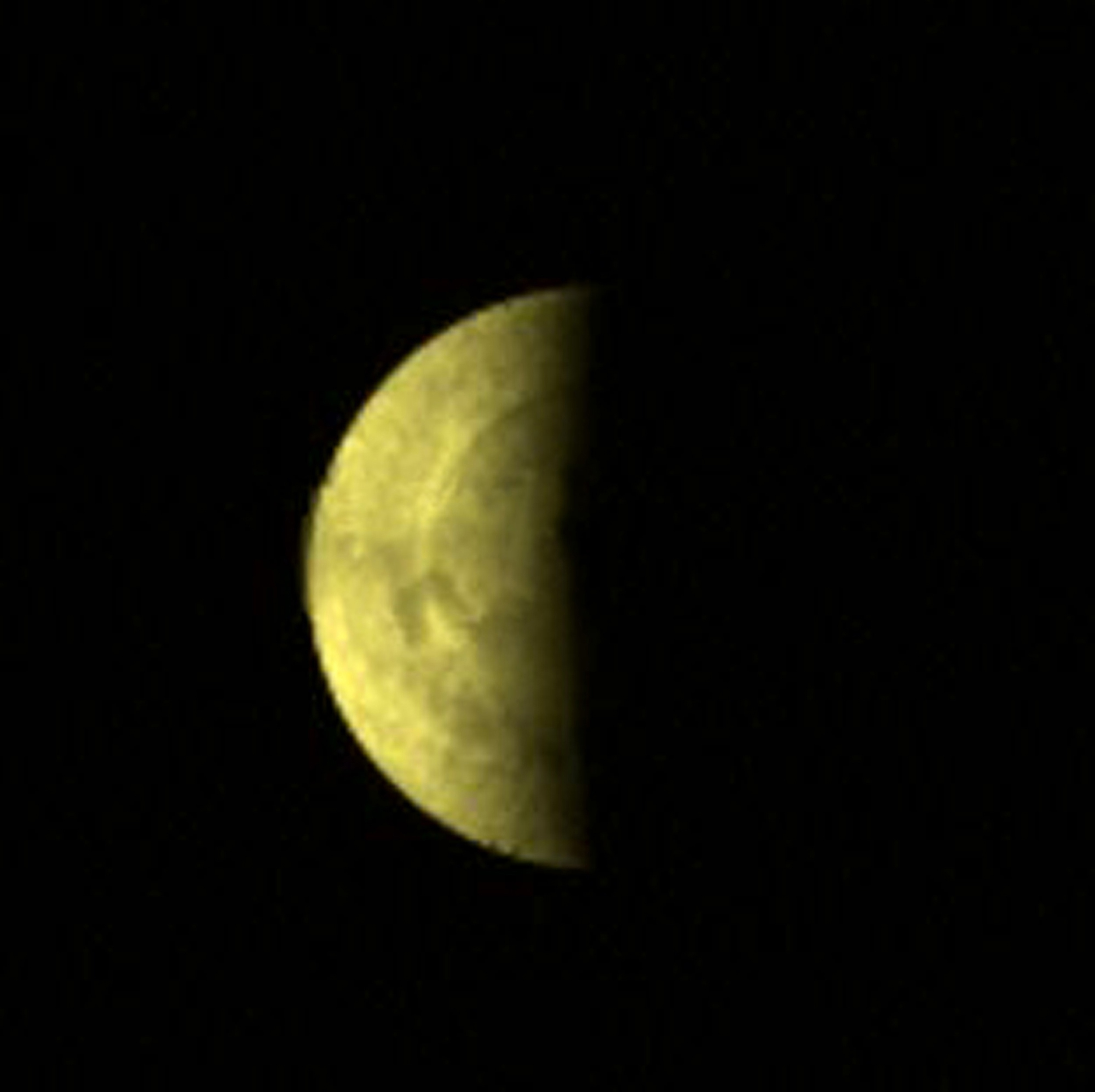
This false-colour ultraviolet view is one of the first-ever images of the southern hemisphere of Venus, showing the day and night sides over the South pole. It was taken on April 12, 2006.
Views of Venus Day and Night Side
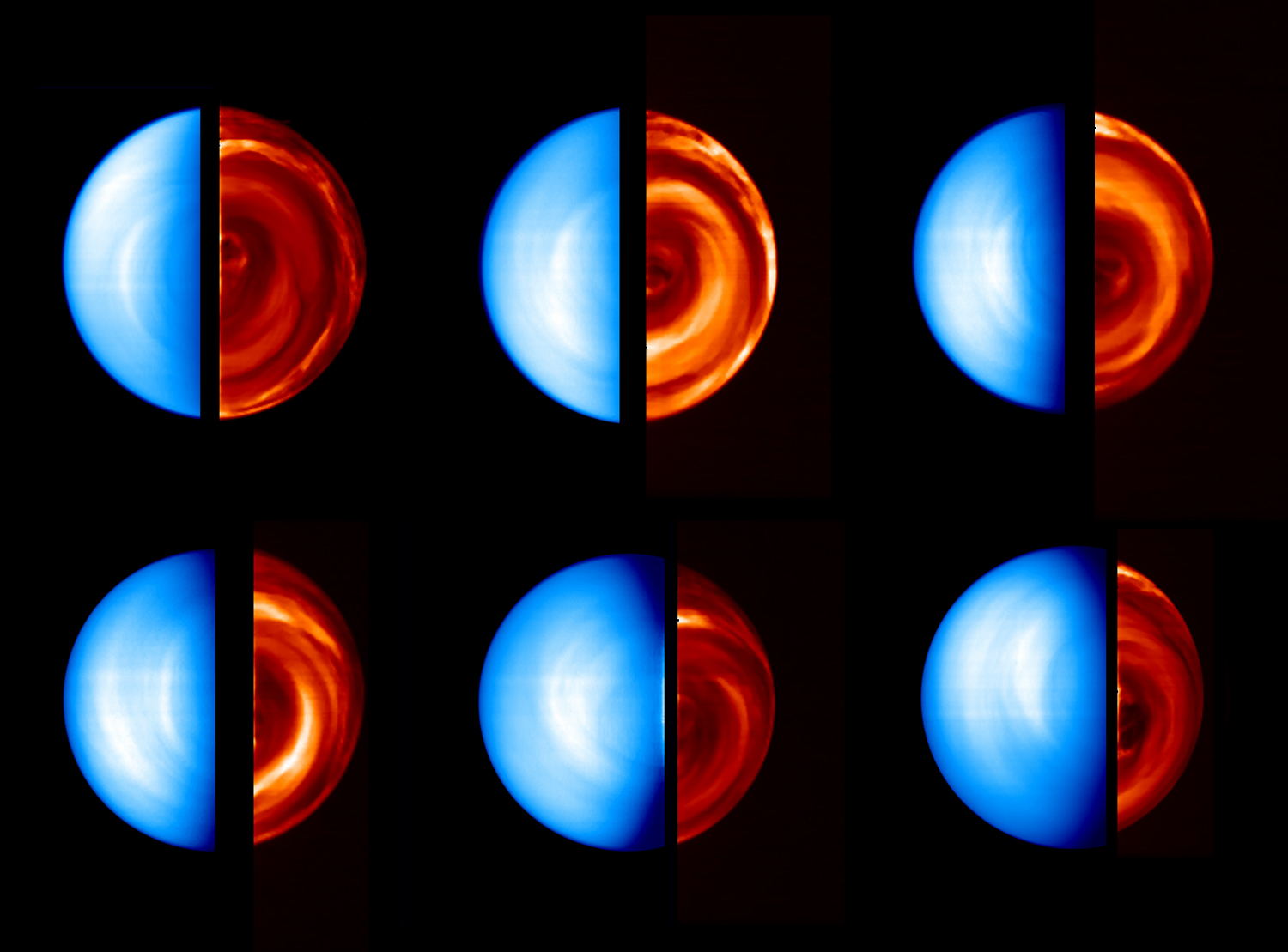
This sequence of images was taken by the Ultraviolet/Visible/Near-Infrared spectrometer (VIRTIS) on board ESA’s Venus Express spacecraft between April 12 and 19, 2006, during the first orbit (capture orbit) around the planet.
Atmospheric Stripe-like Features at Venus
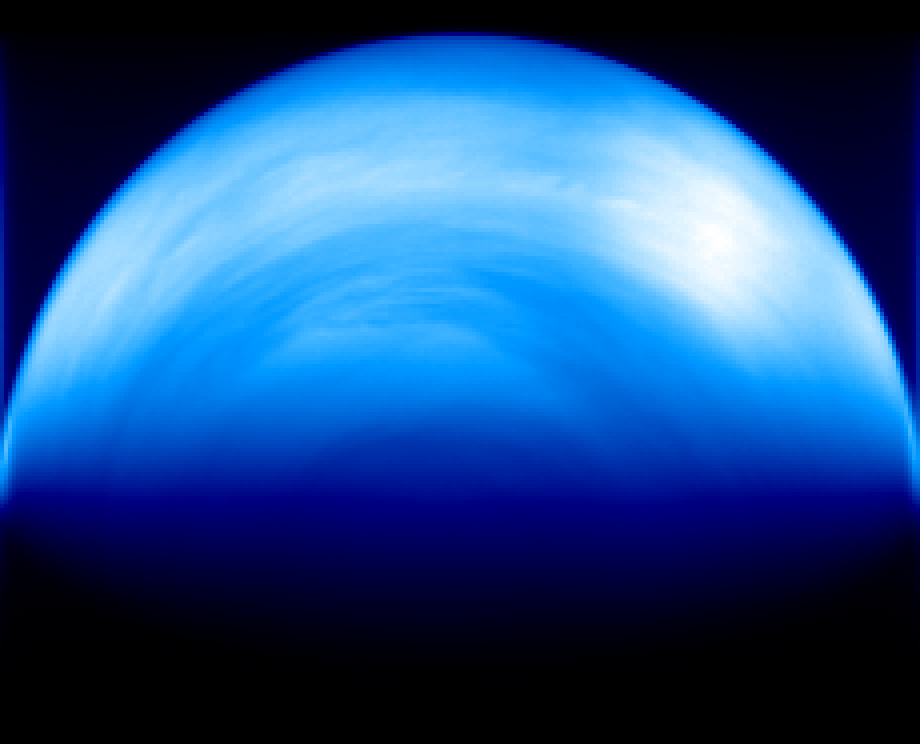
In this image, it is possible to see interesting atmospheric stripe-like structures. Spotted for the first time by Mariner 10 in the 1970s, they may be due to the presence of dust and aerosols in the atmosphere, but their true nature is still unexplained. This image was taken on April 19, 2006.
Venus's Southern Hemisphere in Infrared
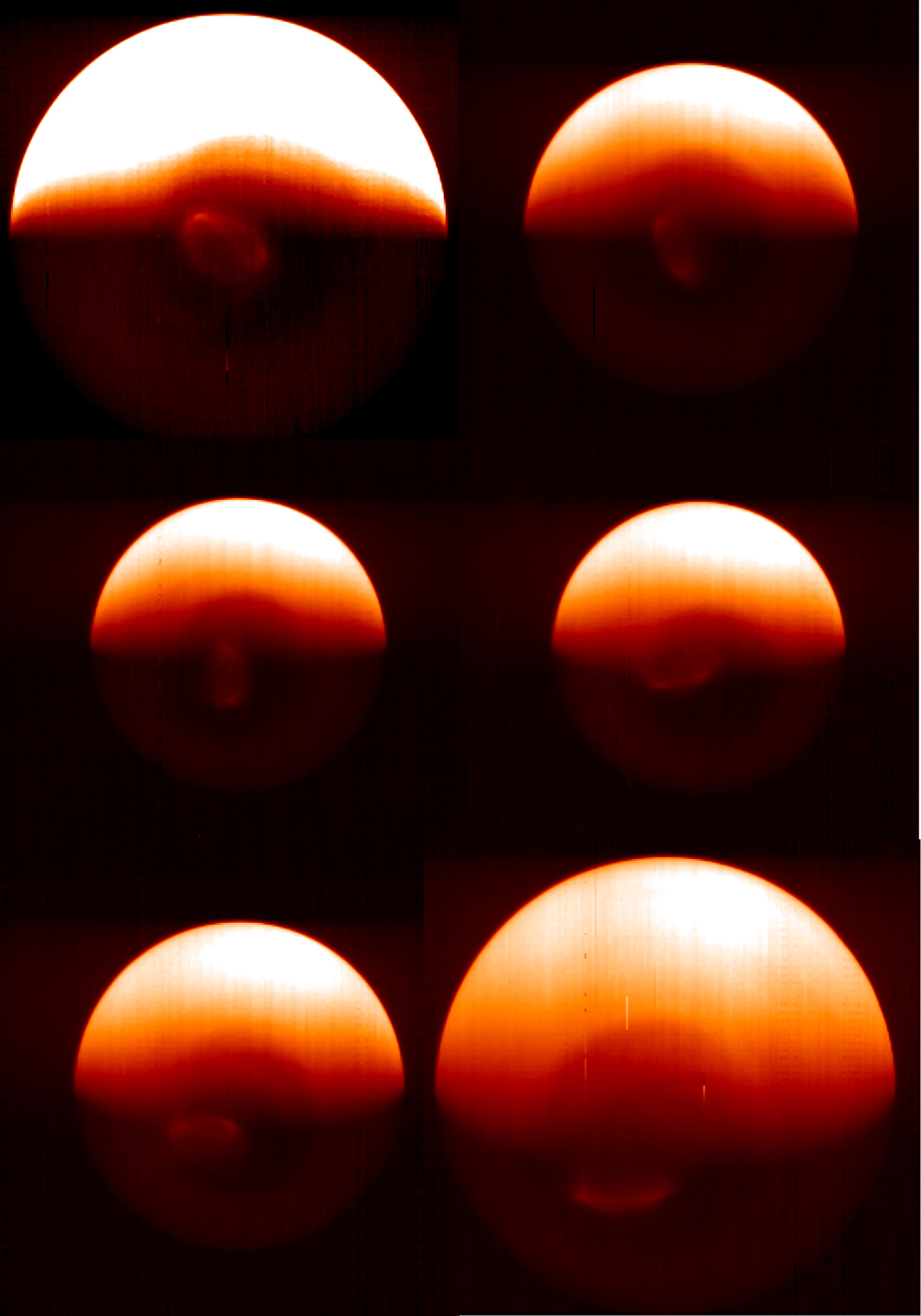
This composite image shows six infrared views of Venus as seen by the Ultraviolet/Visible/Near-Infrared spectrometer (VIRTIS) on board ESA’s Venus Express spacecraft between 12 and 19 April 2006, during the first orbit, or ‘capture orbit’, around the planet.
'Thin' Cloud Layer Close to Venus' South Pole
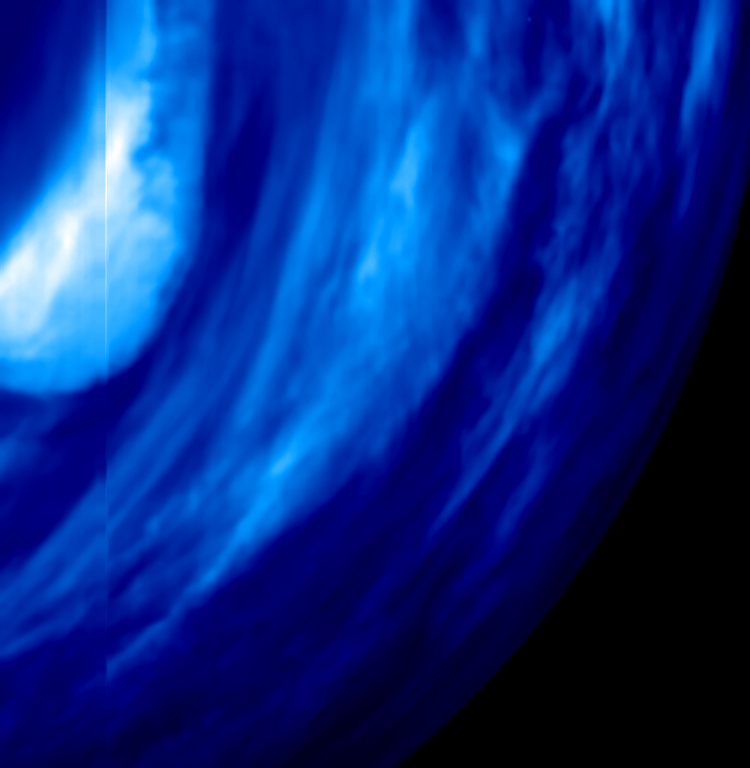
The bright big spot on the left of the image corresponds to an area where the cloud deck is thinner. This image was taken Sept. 23, 2006.
Radiation from Below the Venusian Cloud Deck

The image, taken at a wavelength of 1.7-micrometre, shows the thermal radiation emitted from about 15-20 kilometres altitude. The brighter the colour (towards white), the more radiation comes from the surface, so the less cloudy the region in the line of sight between the view and the spacecraft is. This image was taken July 22, 2006.
Surface Areas Mapped by VIRTIS
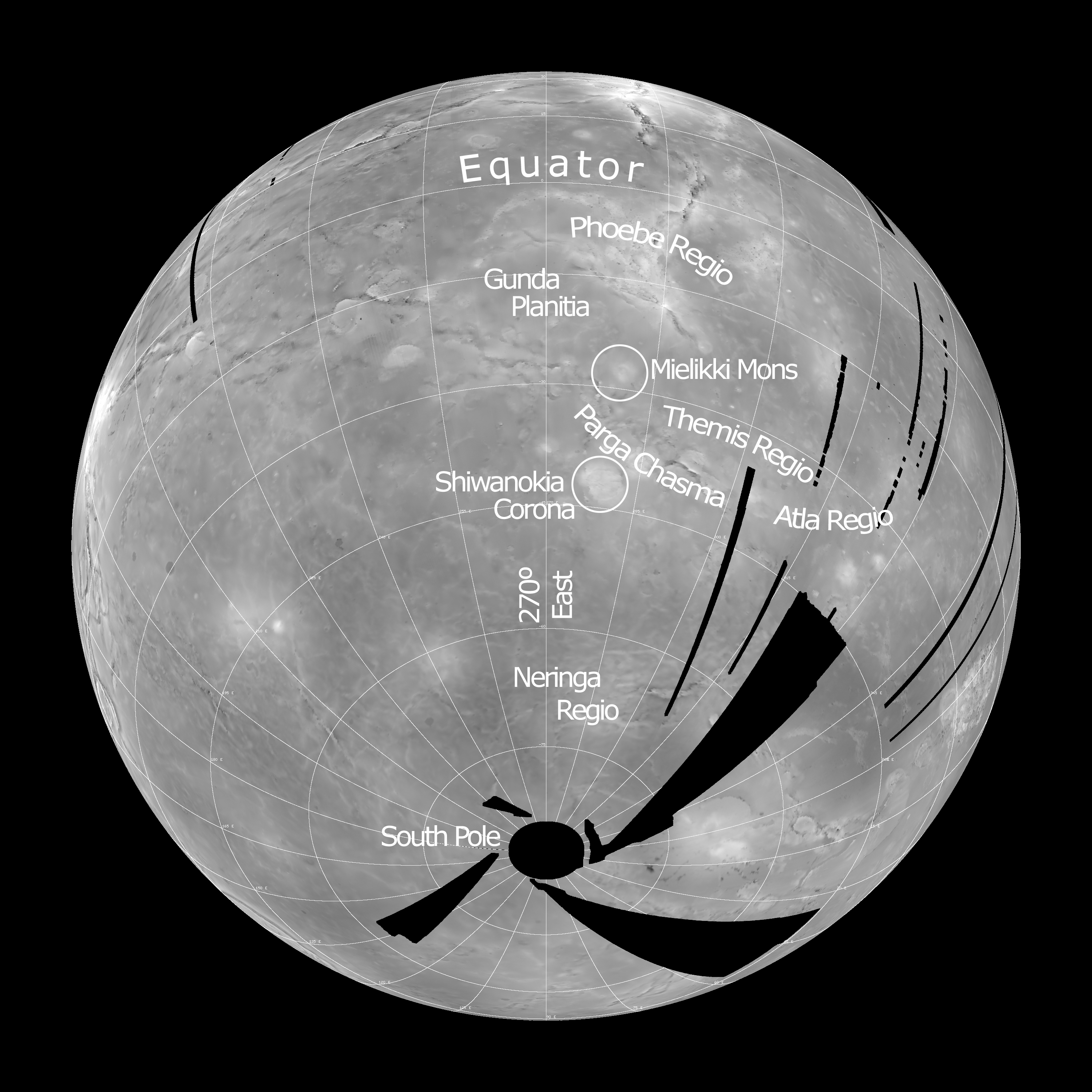
On this radar-map of Venus, built with data that NASA’s Magellan gathered in the early 1990s, the areas that were over-flown by Venus Express on August 10, 2006 are indicated by the named features.
Get the Space.com Newsletter
Breaking space news, the latest updates on rocket launches, skywatching events and more!
Venus, Southern Hemisphere
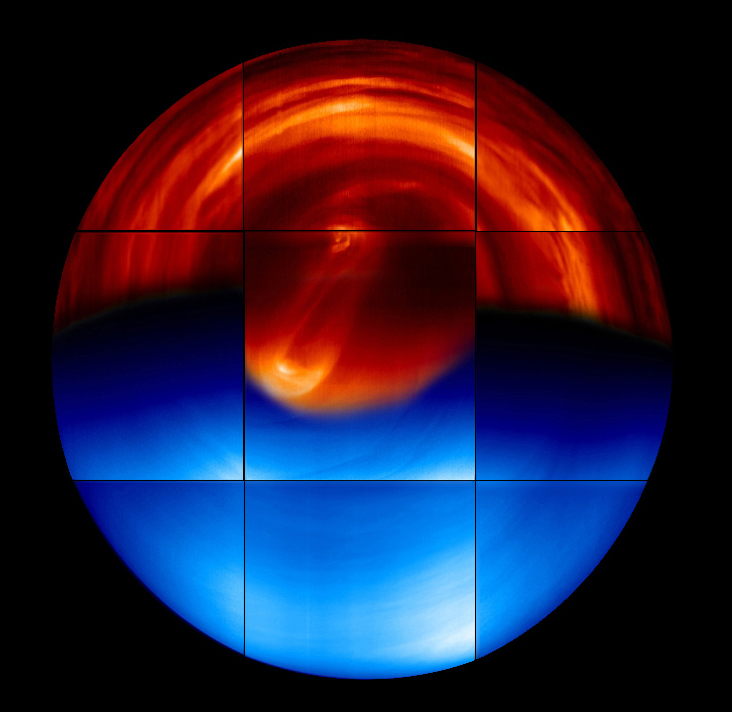
The night-side hemisphere (in red at the top) is made of infrared images taken at 1.74 micrometres, showing the lower layers of the cloud deck surrounding the planet at about 45-km altitude. This image was taken May 16, 2006.
Global View of Venus
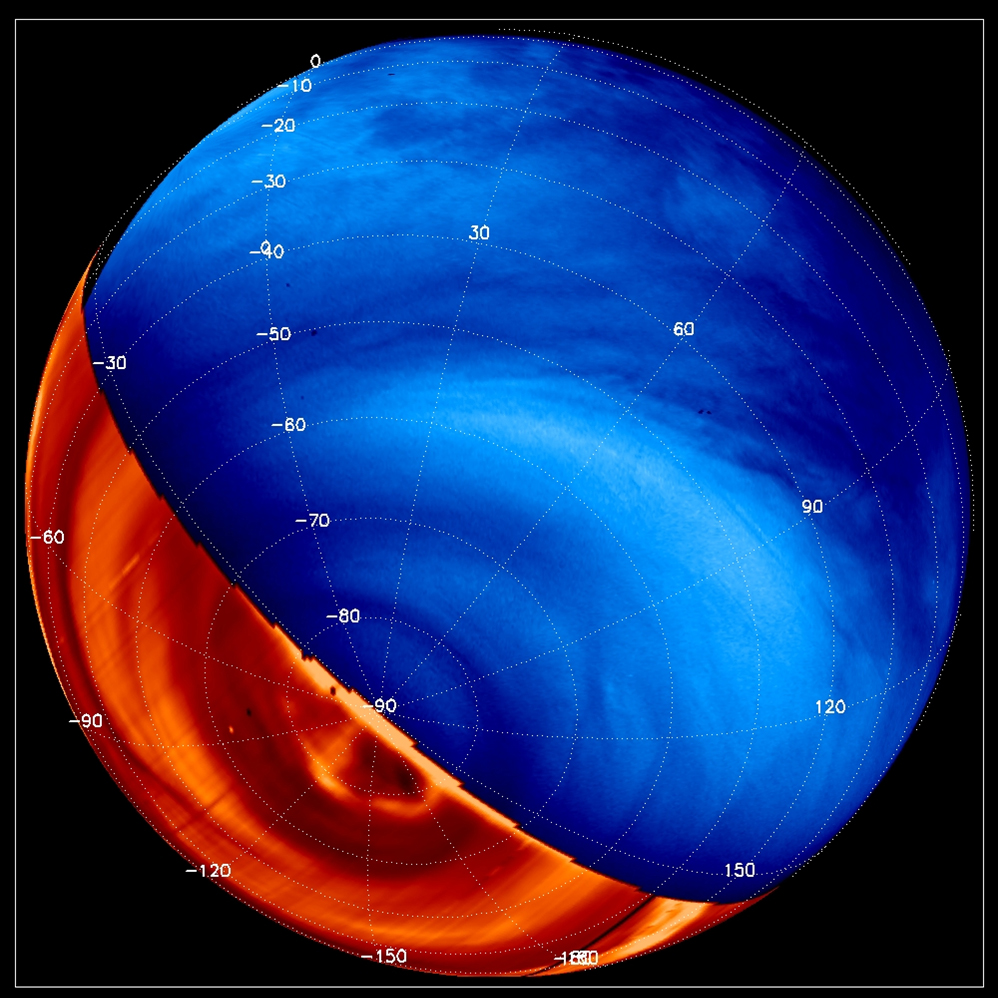
This composite image of Venus is a combination of ultraviolet images obtained by the Venus Monitoring Camera (VMC) and infrared images obtained by the Visual and Infrared Thermal Mapping Spectrometer (VIRTIS) on board ESA’s Venus Express.
Cloud Features Seen on Venus
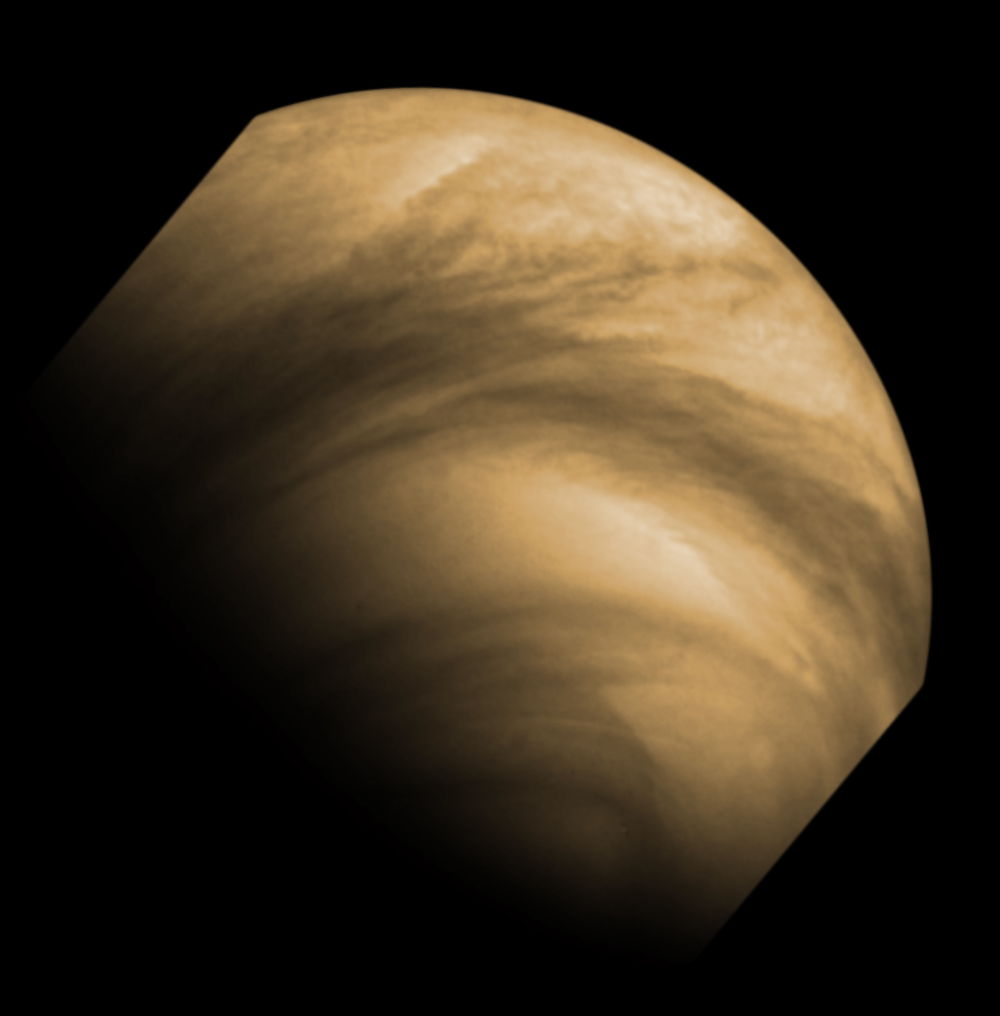
This false-color image of cloud features seen on Venus by the Venus Monitoring Camera (VMC) on the European Space Agency's Venus Express. The image was captured from a distance of 30,000 km on December 8, 2011.
Join our Space Forums to keep talking space on the latest missions, night sky and more! And if you have a news tip, correction or comment, let us know at: community@space.com.

Space.com is the premier source of space exploration, innovation and astronomy news, chronicling (and celebrating) humanity's ongoing expansion across the final frontier. Originally founded in 1999, Space.com is, and always has been, the passion of writers and editors who are space fans and also trained journalists. Our current news team consists of Editor-in-Chief Tariq Malik; Editor Hanneke Weitering, Senior Space Writer Mike Wall; Senior Writer Meghan Bartels; Senior Writer Chelsea Gohd, Senior Writer Tereza Pultarova and Staff Writer Alexander Cox, focusing on e-commerce. Senior Producer Steve Spaleta oversees our space videos, with Diana Whitcroft as our Social Media Editor.









